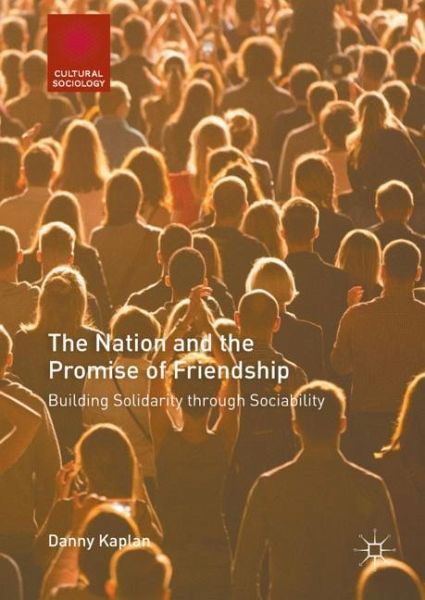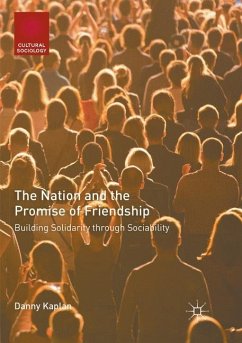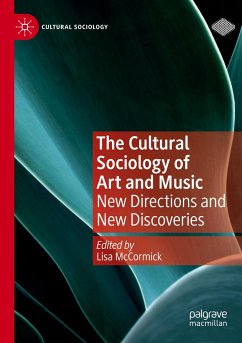
The Nation and the Promise of Friendship
Building Solidarity through Sociability
Versandkostenfrei!
Versandfertig in 6-10 Tagen
68,99 €
inkl. MwSt.
Weitere Ausgaben:

PAYBACK Punkte
34 °P sammeln!
When strangers meet in social clubs, watch reality television, or interact on Facebook, they contribute to the social glue of mass society-not because they promote civic engagement or democracy, but because they enact the sacred promise of friendship. Where most theories of nationalism focus on issues of collective identity formation, Kaplan's novel framework turns attention to compatriots' experience of solidarity and how it builds on interpersonal ties and performances of public intimacy. Combining critical analyses of contemporary theories of nationalism, civil society, and politics of frie...
When strangers meet in social clubs, watch reality television, or interact on Facebook, they contribute to the social glue of mass society-not because they promote civic engagement or democracy, but because they enact the sacred promise of friendship. Where most theories of nationalism focus on issues of collective identity formation, Kaplan's novel framework turns attention to compatriots' experience of solidarity and how it builds on interpersonal ties and performances of public intimacy. Combining critical analyses of contemporary theories of nationalism, civil society, and politics of friendship with in-depth empirical case studies of social club sociability, Kaplan ultimately shows that strangers-turned-friends acquire symbolic, male-centered meaning and generate feelings of national solidarity.














